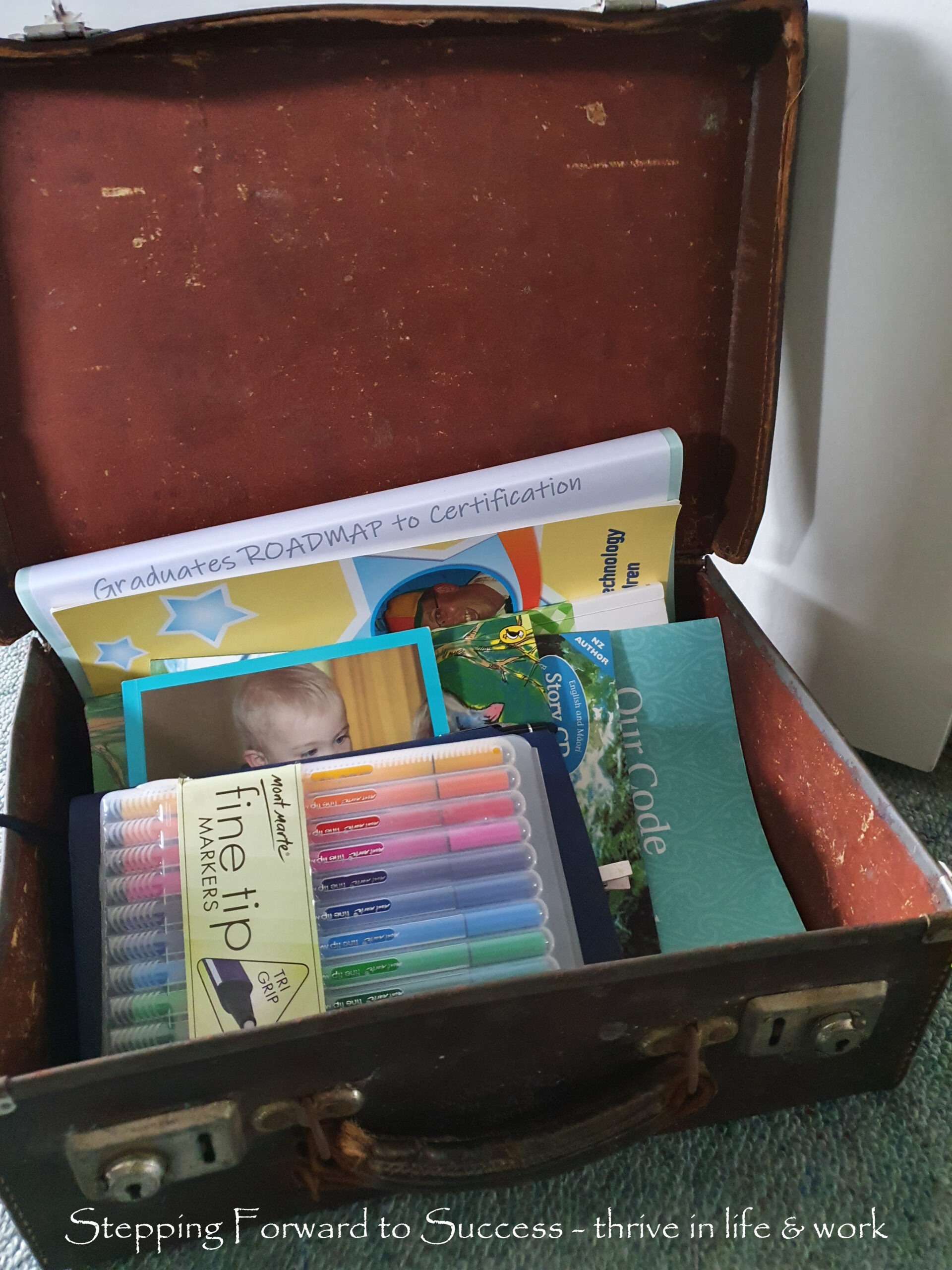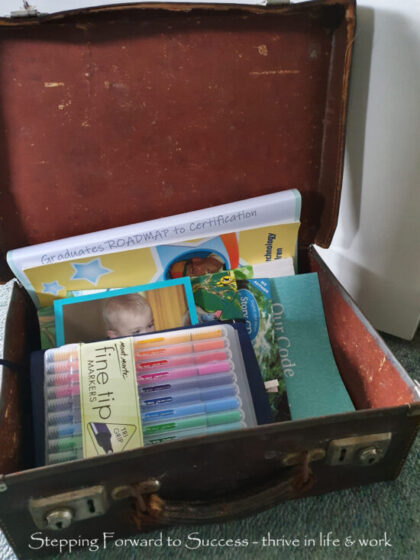In New Zealand, the journey to becoming a provisional teacher is an exciting one.
It’s a period rich with growth, learning and professional development.
The skills you learn during your provisional teaching period can set you up for a successful career ahead.
A mentor can play a crucial role in helping you develop in key areas.
This is what Keely Wills discovered when working with me, recently undertaking an extended version of my Kete Ako programme.
Through our work together, Keely developed invaluable insights into how she can leverage things like reflective practice and inquiry as a springboard for successful lifelong teaching.
Here’s how the skills you develop during your provisional teaching period can contribute to a solid foundation for professional advancement.

1: Reflective Practice – The Key To Continuous Growth
Reflective practice is one of the core skills that you will nurture during provisional teaching. Reflecting on your day, weekly or monthly teaching experiences allows you to assess your effectiveness, understand the children’s diverse needs, and discover what works best in your Centre’s various learning environments.
This habit of self-assessment is a vital one to develop as it not only enhances your teaching practices in the moment but also helps you to build a mindset geared toward continuous improvement—a crucial quality in professional teachers.
Mentorship supports reflective growth
Working with a mentor can help you structure your reflections, ensuring they will always be meaningful and purposeful. By asking leading questions, they can encourage you to gain deeper insight. This process of consistent self-evaluation will prepare you for the demands of full teacher certification.
Keely says, “Leanne really provided the platform to reflect, go in-depth and grow. I felt accountable for achieving my goals but never pressured. Leanne gave me the space to analyse my work and really get to the nitty gritty. Leanne is professional, asks questions that are thought provoking and ignites the leader within you!”
2: Inquiry-Based Learning – Cultivating Curiosity and Problem-Solving Skills
Inquiry-based learning is a powerful approach in ECE. This is not just a requirement for certification, the Inquiry encourages you to ask questions, explore new ideas, and remain curious about your teaching.
Inquiry topics often emerge naturally, sparked by challenges that arise in your Centre or new teaching methods. Asking questions about these topical subjects will help you develop a deeper understanding of the “why” behind your actions, furthering your teaching practices.
Supporting Effective Inquiry
Having a mentor guide you through your inquiry topics can help you balance a sense of curiosity with an analytical mindset. This exploration, balanced with drawing on important teaching resources, can be hard to achieve alone.
Your mentor can also encourage you to pick inquiry topics that relate directly to your Centre experiences – such as strategies for improving communication, managing diverse learning needs, or fostering emotional development in young children. This experience in practical inquiry helps you become a proactive problem solver—a key asset for lifelong success in education.
Keely says, “Constant milestone reports allowed me to consider the work I have achieved and the ongoing learning and goals. I also found going back through important ECE documents such as ‘Our Code Our Standards’ allowed me to meet those goals and standards that are required for completing a registration, I found as I wrapped up my inquiry, I had all the artifacts I needed to sign everything off.”
3: Prioritising Teaching Tasks – Planning Ahead To Avoid Overwhelm
One of the most valuable skills you can develop as a provisional teacher is effective task prioritisation. The certification journey is filled with numerous requirements, like completing inquiry focus, reflecting on your practice, documenting learning, and engaging in professional development.
Without clear prioritisation, these tasks can easily pile up. Over time, you’ll quickly find it is a path that leads to stress and diminishes the quality of your work. Learning to plan ahead and focus on essential tasks ensures a more organised, intentional approach. You can make meaningful progress without feeling overwhelmed.
Supporting Task Prioritisation
Sometimes it is hard to see the wood through the trees, which is why it can be incredibly helpful to have the external perspective of a mentor. They can provide guidance on how to set priorities within the certification process, helping you focus on what matters most.
For example, your mentor might unpack how to begin inquiries early, break down larger tasks into manageable steps, and schedule regular time for reflection. By learning to tackle each requirement in a timely, strategic way, you’ll build a workflow that supports high-quality work and reduces last-minute stress.
Keely says, “I found it difficult to prioritise this work. Leanne gave me the platform to have discussions, plan ahead and work on my inquiry. I felt prior to the mentorship doing these alone was far more difficult.”
4: Lifelong Learning – A Commitment To Evolving As A Professional
Teaching is an ever-evolving field, with new research, technology, and pedagogical theories shaping how we educate young minds. If you are able to adopt a growth mindset during your training, you’ll be better prepared to adapt and thrive throughout your career.
Viewing certification as a milestone rather than an endpoint will help you remain open to continual learning and professional development.
Supporting a lifelong learning mindset
When you begin your provisional teaching journey, you are laying the groundwork for a career dedicated to the growth and development of young children. It can feel like a lot of responsibility! Having a mentor there to guide you can help you develop these essential skills in a supportive environment.
Keely says, “Leanne works with you holistically, she listens, inquires and asks questions that enable you to rethink and understand the “why” of your inquiry. Leanne provides you with the support to develop momentum throughout your inquiry – this is then an evidently learnt process as you continue your learning as a professional teacher.”
The Power Of Mentorship
Through reflective practice, inquiry-based learning, prioritisation, and a lifelong learning mindset, you can really build a strong foundation for effective teaching. But, it is hard to do all of that alone! A mentor can play a vital role in fostering these skills, offering guidance and support that will stay with you throughout your career.
With the help of mentorship, you will not only move toward certification but also shape yourself into a responsive, resourceful, and resilient teacher. As you step forward into a fully qualified teaching role, you bring with you a toolkit of skills that will serve you and the children you teach.
The great thing about mentorship is that you can layer the support you receive by having both a Centre assigned mentor and an external mentor. This was the triangle relationship that Keely enjoyed during the extended Kete Ako programme.
With support from within and outside her centre, Keely benefited from multiple perspectives and development opportunities. If this sounds like it would be valuable for your provisional teaching journey, I’d love to hear from you! Get in touch to see how I might be able to support you in your teaching journey.
I also have resources that can be added to your toolkit. Click here to read more about the Roadmap. Or click here to purchase the Roadmap to Certification e-book for Provisional Certified Teachers. Alternatively, if you are wanting to learn more about my packages, reach out today.
Useful links:
My Website

